Year 3 - Safer Internet Day
Year 3 have been absolute Internet Legends as we celebrated Safer Internet Day! Our young digital citizens spent the day exploring how to use the internet for good while keeping themselves and their friends safe. Through interactive games and group discussions, we tackled some big questions about life online.
Year 4 Computing - Internet Safety
In this week's computing lesson, Year 4 have been exploring the ways in which we can keep ourselves safe when using the Internet. We have learnt that we cannot always trust what we see and that we should never tell others personal things about ourselves when we are online. Year 4 completed a quiz to show their expertise and enjoyed playing a game, helping our character make the right choices when faced with an online problem.
Online Safety - Tracking Devices
Tracking devices were designed to help people find lost belongings, but they’ve also opened the door to worrying forms of misuse. This week’s #WakeUpWednesday explores how Bluetooth trackers like AirTags and SmartTags can be misused for stalking, bullying and invading young people’s privacy. Download your FREE copy here >> https://vist.ly/4f4u2
Online Safety - Fortnite
Fortnite continues to reign supreme in the gaming world, drawing in millions of players with its bold graphics, fast-paced action and constant stream of new content. This guide looks at the latest developments in the game – such as themed updates, crossover characters and limited-edition cosmetics – and what they mean for young players and the adults who support them. It also unpacks some of the key online safety risks associated with Fortnite. With in-game purchases, cross-platform communication and regular seasonal updates creating an ‘always on’ experience, it’s vital that trusted adults understand how to help children and young people enjoy the game without being exposed to unnecessary risks.
Online Safety - Memes
They’re everywhere online, but do you really know what memes are saying? ???? This week’s #WakeUpWednesday guide explores the role of memes in youth culture - and why they’re not always as harmless as they seem. From hidden messages to misinformation, we break it down ???????? Plus, we share four simple ways parents and educators can guide young people to engage more safely with memes - encouraging empathy, critical thinking and healthier digital habits ????????
Online Safety - Nintendo Switch 2
Nintendo’s long-awaited Switch 2 has finally arrived, blending fresh hardware with fan-favourite franchises. From Mario to Pikachu, the familiar mascots are back – but so too are evolving online features, in-game purchases, and potential exposure to mature content. As ever, it’s essential that parents and educators understand the risks to young players. Among these are GameChat voice communication, camera-based gaming, and potential access to mature-rated titles. This guide outlines what to watch out for and how to keep children safe, engaged and having fun.
Online Safety - Youtube Kids
YouTube Kids promises a safe, child-centric experience with colourful visuals, age-filtered content, and robust parental controls. Designed to appeal to younger viewers, the app has grown rapidly, being used by tens of millions of children worldwide. But is it as safe as it seems? Despite YouTube Kids’ safeguards, reports have highlighted worrying issues, such as inappropriate content slipping through filters, subtle advertising, and the use of manipulative design to keep children engaged. Our guide explores how to navigate these pitfalls, offering practical advice for making sure children get the most from the platform – without the risks.
Online Safety - Violent Content Online
Around 70% of teenagers say they’ve seen real-life violence on social media in the past year. Violent content online isn’t just something young people are occasionally stumbling across – in many cases, it’s becoming a routine part of their digital world. From fights and stabbings to toxic ideologies , disturbing videos are often just a click away on social media or group chats. This week’s #WakeUpWednesday guide highlights the unseen risks this poses to children’s mental health , sense of safety, and social behaviours. With insights from a leading expert , it offers practical ways for parents and educators to respond with empathy and support – not punishment or panic.
Online Safety -Minecraft
With its limitless opportunities for building, exploring and collaborating, Minecraft remains a global gaming phenomenon. Its broad appeal lies in how open-ended it is – but this also means it’s not without risk. From chatting with strangers on public servers to the grief of having a beloved creation destroyed, young players can face challenges if left unsupervised. Minecraft can also become a time sink for enthusiastic players, with late nights spent crafting and constructing, potentially impacting school and social lives. We’ve created this free guide to help parents and educators understand how to keep young gamers safe – from choosing age-appropriate game modes to setting boundaries around screen time and spending.
Online Safety - Making Friends Online
As technology becomes increasingly embedded in young people’s lives, it’s common for them to form friendships entirely online. These connections can provide companionship and community — but they also bring potential dangers that parents and educators need to be aware of. From online grooming and privacy breaches to exposure to upsetting content, meeting people on the internet isn’t without risk. This guide explains the possible hazards of online friendships and gives parents and educators essential advice on helping children build safe, positive relationships online.
Online Safety - Search Engines
Search engines are a routine part of everyday life, giving instant access to billions of web pages; however, this also increases the risk of children encountering harmful, untrustworthy, or illegal content. We’ve created this free guide – also available in podcast format – offering parents and educators quickfire information about the risks of search engines and practical steps that can be taken to safeguard children online.
Online Safety - Instagram
Instagram remains a go-to app for teens, with its endless stream of photos, videos, and ‘Stories’ keeping young users constantly connected. From influencer content to live broadcasts, the platform is packed with evolving features that can feel fun and engaging – but can also raise some serious concerns around screen time, online pressures and exposure to inappropriate content. We’ve created this free guide – also available in podcast format – offering parents and educators up-to-date knowledge on the risks and safety tips for this latest version of Instagram.
Online Safety - Streamers
Livestreaming is now a major part of children’s entertainment, evolving from gamers sharing screens into a booming industry with diverse personalities. While watching streamers can be entertaining, it comes with no small number of risks for children, such as misinformation, negative influences, and inappropriate content. With over 2.5 million viewers on Twitch – the current most popular streaming platform – at any one time, this guide highlights the potential dangers associated with watching livestreams and the importance of staying informed. We’ve created this free guide – also available in podcast format – to provide parents and educators everything they need to know about streamers and how to keep children protected.
Online Safety - Roblox
Whilst they can be a great way for friends to socialise, online games like Roblox that allow multiplayer gameplay with strangers are always fraught with a variety of dangers that can expose children to inappropriate or harmful content. Roblox enables people to play anonymously, which can often be something that attracts people to misuse the game and potentially put young people at risk of harm. In addition to interacting with random strangers across the world, other factors such as in-game purchases and potential scams can also pose a financial risk. It’s important that parents and educators remain aware of the risks associated with this popular title and how it can be used safely. This free guide – also available in podcast format – offers parents and educators expert advice on what can be done to ensure that young people have a safe and enjoyable experience with Roblox.
Online Safety - Marvel Rivals
Marvel Rivals is a highly popular multiplayer shooter that pits iconic superheroes against formidable villains. The game is free –to play on PC and current-generation consoles but does feature microtransactions that allow players to spend real money on cosmetic items for their characters. While Marvel Rivals has been deemed suitable for children aged 12 and over, there are several risks associated with the title that parents and educators should be aware of. This free guide offers more information on these safety concerns and lets you know how to ensure that children playing the game can have a fun and age-appropriate experience.
Online Safety - Whatsapp
According to Ofcom’s most recent Media Use and Attitudes Report, roughly 55% of 3-17-year-olds in the UK are using WhatsApp as their primary messaging service
Online Safety - Online Relationships and Dating Apps
Dating apps have grown rapidly in popularity since their introduction, transforming the way many of us meet new people and form relationships. While these platforms are typically restricted to an audience of over-18s, there are still children and young people attempting to make use of them and exposing themselves to their risks – from online harassment to outright abuse. As a parent or educator, it can be daunting to navigate this complex and ever-evolving landscape, and to know how best we can support and protect youngsters who are accessing dating apps. This guide breaks down the risks associated with these platforms and offers expert advice on how to safeguard children from such online safety concerns.
Online Safety - Scams and Fake News
While misinformation and ‘fake news’ are well-known concerns online, it's also the case that scammers and other cyber-criminals can try to utilise this phony material to manipulate, frighten or otherwise persuade their victims into cooperating. With constantly evolving scams and such a high volume of misinformation online, it's vital that parents and educators know how to safeguard the children in their care against these kinds of tactics. Our guide breaks down the most prominent ways in which scammers attempt to use ‘fake news’ to their advantage, as well as how to protect youngsters from being manipulated by such techniques.
Online Safety - Supporting Children to Develop Emotional Literacy
Anger at a toy being stolen
Wake Up Wednesday - Health and Fitness Apps
Over time, more and more fitness apps have been finding their way into circulation. Usually free to download – at least initially – these apps claim to offer helpful advice and assistance in routine management to those looking to lead a healthier lifestyle. While these platforms can be useful, they do present several safety concerns. These issues become more significant when we consider that children and young people can use these apps to stay active – whether out of concern for their own health or for reasons of body image. Our free guide breaks down the risks of health and fitness apps and offers expert advice on how to address these concerns to safeguard younger users.
Online Safety - TikTok
With 22% of its billion-strong userbase being between the ages of 13 and 17, the popularity of TikTok among the younger generation is indisputable
Online Safety - Justalk Kids
JusTalk Kids is an alternative version of the JusTalk app, aimed at an audience aged 13 and under. As that upper age limit suggests, this social networking platform is intended to be suitable for youngsters, providing them with a space of their own to interact with a community their own age. Unfortunately, there are still risks associated with JusTalk Kids, so it’s vitally important for parents and educators to understand the potential dangers for those who use the app. Our free guide delves into the most prominent online safety concerns of JusTalk Kids, while also letting you know how to ensure that children can be protected, should they wish to create an account.
Online Safety -Safety on Social Media
With social media’s ever-growing popularity among children and young people, it’s important for adults to keep themselves apprised of the associated risks and help youngsters to navigate these platforms in a safe, responsible manner. However, it can be difficult to know exactly how to protect children and young people while they use these apps. This free guide offers you expert tips on supporting youngsters to enjoy the features of social media while avoiding the risks.
What you need to know about: Mental Health & Wellbeing Apps
The rise in awareness of mental health issues has given way to several easily accessible services to help with such problems – for example, wellbeing apps promising to serve as an assistive tool for anyone in need of support. While these can be useful to some, there are a few risks which are important to consider – especially if a child or young person is using the app. Of course, it can be tricky to know exactly where the safety concerns lie with a service intended to help and support its users – and it can be harder still to safeguard younger users. This free guide breaks down the online safety risks of mental health and wellbeing apps, before letting you know how best to keep children and young people safe if they ever wish to use these services.
Wake Up Wednesday
As one of the most popular messaging apps available, Snapchat sees an enormous amount of usage across the globe – with a significant number of those utilising the platform being under 18. For that reason, it’s important to understand the potential risks to younger users when spending time on this app. Of course, it can be difficult to identify every hazard associated with the platform, let alone what can be done to mitigate these concerns. Our guide lays out the key online safety risks of Snapchat, as well as how to safeguard young people while they use the app.
Online Safety - Fortnite
Over the years, Fortnite has become a household name in the gaming community. It was one of the first titles in the ‘battle royale’ subgenre, where players are thrown into a chaotic free-for-all on a sprawling map and fight until only one remains. Its cartoonish presentation and satisfying gameplay loop make it a potentially attractive choice for young players. However, it’s important to remember that online safety risks are always present – especially in multiplayer games – and Fortnite is no exception. This free guide, put together with expert input, tells you all you need to know about the safety concerns of this popular title and offers advice on how to protect children and young people as they enjoy the game.
Online Safety - Horror Films and Age Ratings.
Ofcom’s latest Media Use and Attitudes Report states that most children can watch streamed films on a mobile device both in and out of the home, with 80% of UK children watching films on phones, tablets or laptops. That’s a lot of youngsters who might be using their own gadgets to watch something suitably spooky this Halloween season or perhaps, something a little too frightening. With older children in particular, it can be difficult knowing how to manage their increasing interest in more mature content – including horror films, in many cases – let alone knowing how best to safeguard them from inappropriate material. Our free guide offers expert advice not only on the risks of exposure to horror films and other potentially upsetting content, but also on preventing young viewers from seeing this material or protecting them from being too deeply affected by it if they do.
Online Safety - In Game Chat
If you’ve played or seen any online games from the past few years, you’ve probably noticed that almost every title of this kind has some kind of chat functionality. Whether allowing players to send text messages to one another or letting them use their mics to chat together on voice if you’re on a multiplayer game, chances are you can talk to your fellow gamers, one way or another. Sadly, such a function comes with its fair share of risks – as is to be expected with a feature intended to connect gamers from around the world and it is immensely important for parents and educators to understand these concerns and help young players address them. That’s why we’ve put together this free guide, breaking down the most prevalent issues associated with in-game chat and letting you know how to keep youngsters as safe as possible if or when they’re exposed to this feature.
Online Safety - Instagram
Instagram is one of the most well-known social media platforms around, frequented by users of all ages all over the world, and allowing them to share photos and videos with friends, family and the wider public if they wish. The site has many younger users, allowing people as young as 13 to create an account and engage with its community. As a popular choice of platform for teenagers, it's vital that parents and educators understand the risks associated with the site and what can be done to mitigate them. This free guide lets you know about the most prominent safety concerns on Instagram, offering expert advice on how to make young people’s experiences on the app as secure as possible.
Online Safety - What Parents Need to Know About Sharing Images
The sharing of intimate images online can be a dangerous avenue through which abusers seek to exploit children and young people, forcibly exposing them to explicit material, coercing them into sharing self-generated intimate images, and extorting them with the threat of sharing such images more widely. From reputational impact to potential blackmail or emotional distress, and even legal consequences, exposure to this harmful behaviour can have a severe impact. It’s important to remember that the creation and distribution of explicit material featuring under-18s – even by the child themselves – is illegal under UK law. Our guide looks at the serious concerns associated with this behaviour, and lets parents and educators know how best to address these issues and protect young people. Sources https://www.childline.org.uk/
Online Safety - Online Trolling
The term “trolling” refers to sending hurtful or provocative comments – often done anonymously online – to provoke a reaction or cause emotional distress. Anonymity can embolden people into saying things they wouldn’t dare say in person. Euro 2024 and other tournaments tend to put an emphasis on this, with the abuse of both players and fans often increasing during such events. This free guide explores the phenomenon of online trolling, detailing its risks and letting you know how to safeguard children from this harmful behaviour. Some people online simply get a kick out of hurting people’s feelings, making it their mission to get a rise out of anyone they encounter. These people – known as “trolls” – are known for intentionally engaging in offensive or abusive behaviour to upset others online or provoke them into sinking to their level. At the height of events such as Euro 2024, when rivalries between various supporters reach an apex, trolling tends to see a bit of an uptick. Unfortunately, while “just ignore them” is genuinely good advice, it can prove very difficult to put into practice. This is especially true for children and young people, who are often still learning how to manage their emotions and sometimes react impulsively to name-calling and other mistreatment. This Wake up Wednesday, however, we’re offering expert guidance on how to keep youngsters safe from online trolling – both avoiding it entirely and responding to it effectively. Sources https://www.esafety.gov.au/young-people/trolling https://www.theguardian.com/football/2021/nov/03/football-fan-jailed-for-racially-abusing-rashford-sancho-and-saka-after-final-euro-2020 https://www.dailymail.co.uk/sport/football/article-13359555/Tottenham-fan-hurls-abuse-Declan-Rice-heads-exit-corner-leads-Arsenals-goal-thrilling-win-Tottenham.html
What You Need to Know about Gambling
Online gambling has become more prevalent over the years, with such practises widely advertised on social media and even incorporated into various apps and games. It’s growing easier for children and young people to come across opportunities to gamble online, putting parents at greater risk of financial loss or mental and emotional strain. That said, there are steps you can take to keep these youngsters as safe as possible from the impacts of gambling, and our free guide details these for you. At the same time, our expert points out the most significant risks posed to under-18s, to help you keep these damaging pitfalls to a minimum. Support Services NHS National Centre for Behavioural Addictions and the National Problem Gambling Clinic NHS Northern Gambling Service website NHS Southern Gambling Service website NHS West Midlands Gambling Harms Clinic website NHS East Midlands Gambling Harms Clinic website NHS East of England Gambling Service website NHS South West Gambling Service website https://www.gamcare.org.uk/about-us/what-support-do-we-provide/ Sources https://www.leeds.gov.uk/one-minute-guides/gambling-and-young-people Gambling Commission - Young people and gambling 2023 https://www.gamblingcommission.gov.uk/PDF/Measuring-GRH-in-CYP-A-framework-for-action.pdf https://bigdeal.org.uk/ https://parentzone.org.uk/article/pressure-to-spend https://harmreductionjournal.biomedcentral.com/articles/10.1186/s12954-018-0220-3 https://www.problemgambling.ca/gambling-help/gambling-information/about-slot-machines.aspx#near_misses https://link.springer.com/article/10.1007/s10899-017-9701-7 https://www.apa.org/monitor/2023/07/how-gambling-affects-the-brain https://www.itn.co.uk/media-centre/exclusive-5-news-study-university-bristol-business-school-exposes-alarming-scale#:~:text=Across%20all%20media%20channels%20examined,or%20115%20messages%20every%20hour. https://www.gambleaware.org/sites/default/files/2020-12/pbhm-final-report-december-2016.pdf
Wake Up Wednesday - Encouraging Healthy Friendships
It’s common for young people to have comparatively less of an understanding of social conventions. While children can benefit from this to some degree – making friends at the drop of a hat – this can also generate a good deal of confusion regarding certain aspects of any relationships that they form.
Year 3 - Computing - Adding an Attachment to an Email.
In our computer lesson today Year 3 have been learning how to add an attachment to an email. They had to reply to an email from the King then attach the safety quiz that they had made last lesson.
Online Safety - Helldivers 2
Within the last few months, Helldivers 2 has propelled to immense popularity in the gaming community, with players of all ages enjoying its frenetic combat, humorous presentation, and challenging gameplay. Whether they’re cooperating with friends or competing with strangers, the game has attracted many young players despite its higher age rating. As can be expected from an online game – especially one rated 18+ – there are several inherent online safety risks posed to children and young people who play Helldivers 2; from the content of the game itself to the dangers of interacting with strangers online. Our guide highlights the most prominent hazards of Helldivers 2 and provides you with top tips for keeping its younger players safe.
Online Safety - Ofcom Media Report 2024
On 19th April 2024, Ofcom released their annual Media Use and Attitudes Report, detailing the findings of several surveys and their implications for parents, children and young people in the UK. These statistics often include plenty of thought-provoking information relating to online safety. The report itself is extremely extensive, so instead we've provided a bespoke selection of data gathered by Ofcom about children and young people’s experiences on social media, video games and the like. Check our guide for a thorough breakdown of the headline findings.
Online Safety - Shopping Platforms
Long gone are the days where eBay and Amazon were the only means of buying quality items online. The rise of user-friendly, accessible shopping apps has meant that getting clothes, gadgets and other goodies delivered direct to your door can be accomplished with a few touches of your phone’s screen while you’re on the go. These apps aren’t without their issues, however, and users still run the risk of scams, data breaches and other online safety concerns. Being aware of these dangers will go a long way to keeping your money and information safe, so you can still enjoy what these shopping apps have to offer. Our guide has some top tips to help protect young people on these purchasing platforms.
Online Safety - What Parents and Educators Need to Know about Township
Potentially addictive online games are nothing new, but the specifics of this kind of media can vary enormously – and, as a consequence, the risks in each individual game are just as diverse. The city-builder Township is no exception: providing its legions of devotees with accessible, satisfying fun … but exposing them to potential hazards at the same time. However, any safeguarding issues that the game might have can (with a little knowhow) be neutralised – allowing young players to have some engrossing fun without adults needing to worry about children’s data, their money or their mental wellbeing. Our guide outlines how to help young gamers enjoy Township safely and responsibly.
Online Safety - Wake up Wednesday - Clickbait
While scrolling online, you’ll almost inevitably have come across posts or links with headlines like “You Won’t Believe These 10 Crazy Facts about …”. Such lurid language – and the often-dubious nature of the content it promotes – has become something of a running joke on the internet. Yet while these articles are often laughed at by communities online, they can have an insidious side. Clickbait, as it’s known, can frequently function as part of a trap: intended to draw users in for the sake of advertising revenue or, in worse cases, masking an attempting to collect their personal information. This #WakeUpWednesday guide explores the various risks of clickbait and offers some top tips for evading the pitfalls of this controversial marketing technique.
10 Top Tips for Parents and Educators: Encouraging Open Conversations at Home
Cultural and technological changes have made the experiences of today’s children vastly different to our own childhoods; it can be challenging to engage youngsters in open, honest conversation – especially about more sensitive topics. This, combined with many children’s instinct to avoid “rocking the boat”, can make it difficult to stay up to date with the goings on in their lives. However, it’s hugely important that trusted adults still offer an empathetic ear and feel able to encourage young people to open up about their day-to-day activities. This #WakeUpWednesday guide provides ten top tips for promoting open conversations with children – helping to make sure there’s someone they know they can turn to in times of need.
Year 2 - PSHE - Online Safety
In PSHE today, we had a discussion about what the internet is and how we can stay safe online. We focussed on staying safe when playing games and only playing with people we know. If we don't feel safe we TAG it - tell a grown up!
Online Safety - Self Regulation
As infants, we all rely completely on adults to help us resolve situations that are causing us to become upset or stressed. This is known as co-regulation. The next phase, once autonomy has begun to develop, is called self-regulation: this is when children start to become capable of exercising more control over their impulses and behaviour, and managing their own emotions. This vital developmental milestone, however, isn’t reached spontaneously. Learning to self-regulate requires sensitive guidance from trusted adults – simply talking with children about their thoughts and feelings, for instance, can ease the route to self-regulation. This #WakeUpWednesday guide has some expert tips for supporting children to reach this goal.
Online Safety - Monkey
With Omegle finally shutting down in late 2023, the top spot among video chat services is up for grabs – and Monkey has its eyes set on the crown. Randomly matching its users for 15-second conversations, the platform’s developers claim to have created a dynamic online space for people to make new connections and, potentially, even some new friends. Despite these innocuous-sounding intentions, however, Monkey has been criticised for moderation which may not be comprehensive enough to defend against the obvious dangers that unregulated, random video calls pose to the younger element of the site’s userbase. Our #WakeUpWednesday guide tells trusted adults what they need to know about Monkey.
Online Safety - MYLOL
Teenagers’ blossoming interest in romantic relationships and their devotion to online networking is a potent combination – and, regrettably, not always a safe one. It raises all kind of worries about the possibility of sharing intimate images or deeply personal information; and that’s simply with contacts their own age – to say nothing of the chance of connecting with an older stranger. MyLOL – a site which specifically facilitates interaction between 13 to 19-year-olds – has amassed around a million users worldwide, but sadly its safeguarding protocols can’t match that level of success. The ease with which an adult could pose as a teen under a bogus birthdate makes grooming a realistic threat – and that’s far from the platform’s only risk, as our guide explains.
Online Safety - Smartphones
According to Ofcom, 69% of under-18s use a smartphone as their main method of going online. Additionally, 49% of children use them for online gaming – putting smartphones only behind consoles (59%) as the device of choice for playing games on. Most people won’t require such statistical evidence, however, to acknowledge the huge importance of phones to young people. Given that Santa’s recent visit is likely to have bestowed smartphones on an even greater number of young people, it’s a particularly opportune moment to ensure that children are able to use their handsets responsibly – and, above all, safely. From passcodes to parental controls, and from screen time to scams, our #WakeUpWednesday guide has the essential advice.
Online Safety - Freedom of Speech
Freedom of expression is enshrined in international law. Some individuals, however, misunderstand the right to share their opinions as a license to target others with the most horrendous prejudice. So how do we balance people’s prerogative to have their voice heard against everyone’s right to live in a respectful, inclusive society? This conflict frequently unfolds in the digital world. Online posters can be falsely accused of hate speech, while actual hate is often defended as merely being ‘free speech’. To help children and young people learn to identify the boundaries and recognise genuine hate speech when they see it, our #WakeUpWednesday guide provides some helpful definitions and guidelines.
Online Safety - Settng Up Parental Controls
At this time of year, it’s highly possible that you have a new phone, games console or other digital device stashed somewhere at home, ready to be unwrapped. Many parents also prefer to place some protective measures on those gifts – to keep their child shielded from potential #OnlineSafety risks – while others would like to, but aren’t sure where to begin. Our guide shepherds you through the process of establishing parental controls on new internet-enabled devices, from smartphones to laptops to consoles. Simply find the device in question and read on to find out what options you have and how to enable them – letting children enjoy their shiny new gadget, without so much of the worry over where it might lead them.
Online Safety - Tech Free Christmas
With Christmas right around the corner, millions of families are excitedly anticipating the chance to spend some quality time with each other over the festive season. When everyone’s engrossed in their phones or glued to their games consoles, however, genuinely meaningful moments with loved ones can often be difficult to orchestrate. Our Christmas #WakeUpWednesday guide will lend a hand: providing some advice on helping young people to set aside their devices for a while and live in the moment. Even if going full tech cold turkey feels unrealistic, implementing just a few of these tips could still decrease the amount of screen time in your home this festive season – enabling everyone to make the most of it.
Online Safety - Disney +
‘Tis the season for family movie nights Many parents will be turning to Disney+ for exactly that reason – but how free from #OnlineSafety risks is the House of Mouse’s streaming service? Our #WakeUpWednesday guide delves into Disney+
Online Safety - The Online Safety Act
After a lengthy gestation period, the UK Government’s wide-ranging changes to the legislation around digital safeguarding have become enshrined in law as the Online Safety Act. The first of its kind in Britain, the act aims to improve protection for children online and clamp down on illegal material. Regulated by Ofcom, it will primarily impact social media platforms and companies which host user-generated content. The new legislation, however, also carries implications for schools and their staff. Although further developments are expected, our #WakeUpWednesday guide summarises the main points of the act that schools need to be aware of so far – outlining some specific areas that the new laws address and what effect, in practical terms, this will have on education providers.
Online Safety - Black Friday and Cyber Monday
Gone are the days of Black Friday only existing in the physical environs of the high street. Now, both this retail landmark and its sister event, Cyber Monday, see deals and discounts displayed across almost every online retailer. The array of reductions makes this an ideal moment to treat a loved one (or yourself!) to those treasured items for considerably less than their usual cost. The frantic dash for the best bargains online, however, also harbours several risks: chiefly, cybercriminals hoping to exploit people’s excitement and hoodwink them out of their hard-earned cash. Our #WakeUpWednesday has some expert pointers on keeping your both your money and your personal information safe while still making the most of the spectacular sales.
Online Safety - Smart TVs
Smart TVs have become more affordable in recent years, making them readily available to most consumers. These more advanced systems offer numerous features beyond those of a normal television set – chiefly, the ability to access the internet and interface with popular streaming services without the need for a set-top box or other intermediary device. This increased functionality, however, also brings additional threats to privacy, security and more – as you’d perhaps expect from any device capable of going online. As TV is such a cornerstone of our home lives, these dangers can be uniquely difficult to manage. Our #WakeUpWednesday guide breaks down the major risks, with tips on helping children to enjoy TV … stress free.
Online Safety Microtransactions
Does “free to play” really mean what it says? Many hit games cost nothing to download but make their money via microtransactions – a growing #OnlineSafety concern for parents of young gamers. Our #WakeUpWednesday guide has the details.
Online Safety X
Would you get an A for your knowledge of X? This #WakeUpWednesday, our free guide tells parents and carers about the #OnlineSafety risks – both new and familiar – to stay alert for on the platform formerly known as Twitter Download >> https://bit.ly/3Mq6t5p
Wake Up Wednesday- Five Nights at Freddies
Move over Krueger, there's a new scary Freddy in town
Wake Up Wednesday - Sendit
Ready to receive some info? … because we’re ready to Sendit This #WakeUpWednesday, we highlight the #OnlineSafety risks in Sendit – a Snapchat add-on which is meant for older teens but is proving popular with younger users.
Wake Up Wednesday - Fifa 23
Be on the ball with FIFA. Does the ever-popular football simulation keep a clean sheet of #OnlineSafety risks in its latest appearance? This week’s #WakeUpWednesday guide has our essential scouting report on FIFA 23
Wake Up Wednesday - BeReal
A social media app based on authenticity? It’s been dubbed ‘the anti-influencer platform’ – but does that mean that BeReal has fewer #OnlineSafety risks than its glamour-focused rivals? Read our #WakeUpWednesday guide to find out
Wake Up Wednesday - Reddit
This #WakeUpWednesday, do we give credit to Reddit? It’s a space for free speech, which also means it’s not always suitable for children. Our guide to Reddit finds trolling, adult content and fake news among the #OnlineSafety risks
Wake Up Wednesday - Roblox
Roblox is one of the most popular video games on the market. By 2020, the game’s makers were claiming that more than half of children in the USA play it. As a ‘sandbox’ title, Roblox offers a huge amount of creative freedom: it lets players create their own gaming experiences with the Roblox Studio to build custom levels and games, which can then be shared with other players online. Roblox fosters creative thinking and enjoys a robust online community of fans. In the guide, you'll find tips on a number of potential risks such as online daters, in-app purchases and contact with strangers. #WakeUpWednesday
Huggy Wuggy - Parental Information
There have been rising concerns nationally about a horror game character called Huggy Wuggy. There are multiple risks that can arise from children and young people being exposed to frightening content before they are prepared including- Added anxiety and stress – Children and young people are still growing and learning. They may not be at a level of emotional maturity that would be able to process frightening content, even if it is intentional. Horror games could hamper that growth by creating unnecessary anxiety and stress. Intrusive thoughts – Everyone has the ‘thing that goes bump in the night.’ If children play this game or watch it, the Boogeyman could easily be replaced with characters like Huggy Wuggy. This could cause children to lose focus or sleep and could interrupt family rest cycles. New fears – The manipulation of child-friendly items into threatening characters exploits the sense of security a child would feel around these things. They may suddenly be terrified of something that had never been a worry before. Top Tips for helping the child or young person in your care If your child hasn’t mentioned Huggy Wuggy or Poppy Playtime, don’t name it. You may pique their curiosity which in turn could lead to them searching out the content for themselves on platforms they might have access to. If you hear a child in your care mention Huggy Wuggy, pause and remain calm. It could be that they have overheard conversation about in school or online, it doesn’t necessarily mean they have viewed content or have a full understanding of who Huggy Wuggy is. Ask them about the content they enjoy watching online, and if anything they’ve seen has ever made them or their friends upset or scared. If they have seen anything upsetting, reassure them that they are safe. It’s important children know they can come and speak to you without fear of judgement. If necessary, ask them to show you the video or game, and follow appropriate reporting procedures if you are concerned. If you see content on social media or in the news regarding Huggy Wuggy or Poppy Playtime, think before you share it publicly. It may be more helpful to share a credible article with practical advice privately, e.g. through private messaging. Talk about Trusted Adults to teach young people about the importance of seeking help if something worries or upset them. If your child is having nightmares or is anxious about something they’ve watched, it’s important to have a conversation about expressing their feelings.
Wake Up Wednesday - Equality Online
The goal is equality. To celebrate a vibrant opening week of #weuro22, our #WakeUpWednesday guide has top tips for helping young fans ensure they know how to remain respectful online … and how to react if they see a red-card offence!
Wake up Wednesday - Steam
It’s a hot-spot for gamers, but could youngsters get their fingers burned? The latest guide in our #WakeUpWednesday series checks out the popular games distribution platform Steam for potential #OnlineSafety threats
Wake up Wednesday - Minecraft
The biggest-selling video game of all time! However, even the mighty Minecraft isn’t totally immune to #OnlineSafety risks. Our updated #WakeUpWednesday guide brings trusted adults the lowdown on this established children’s favourite.
Wake Up Wednesday - Esports
Fleeting fad – or future Olympic event? Professional esports is booming – and can be a lucrative career – but it’s far from free of #OnlineSafety threats. This #WakeUpWednesday, check out our scouting report from the world of esports.
Wake Up Wednesday - Twitch
If your child knows gaming, they’ll probably know Twitch. It’s a livestreaming community for dedicated gamers – but in among the helpful tips, some #OnlineSafety risks are lurking. Our #WakeUpWednesday guide investigates.
Wake Up Wednesday - Virtual Reality
Virtually harmless … or a risk in reality? VR is growing fast as a medium for gaming and education, but it’s still far from free of #OnlineSafety threats. Our #WakeUpWednesday guide gives trusted adults the heads up on virtual reality.
Wake Up Wednesday - Cross Platform Sharing
‘Going viral’ isn’t always something to celebrate. This #WakeUpWednesday, we look at how inappropriate content becomes an #OnlineSafety risk by crossing between platforms – and ways to prevent your child seeing anything they shouldn’t.
National Online Safety #WakeUpWednesday - Phone Scams
Scam alert! We all think we’ll never be fooled, but there’s always a new con ready to trap the unwary. Our #WakeUpWednesday guide gives you the #OnlineSafety steps to help your family avoid phone scams.
National Online Safety #WakeUpWednesday - Supporting Children to Deal with Uspetting Content
Raising children in the digital age seems to be getting tougher, with the world currently experiencing so many uncertainties. From the continuing impact of COVID-19 to the war in Ukraine, right now children across the globe can scarcely go online without being exposed to unsettling stories, images and ideas. Reassuring a concerned child can be difficult, especially when bad news feels omnipresent. We’ve put together some advice to help you in discussing upsetting events with young ones. In the guide, you'll find tips on a number of tips such as encouraging your child to ask questions, setting limits and to emphasis hope.
National Online Safety #WakeUpWednesday - WINK
A cheeky wink – or something more sinister? Explicit pictures and contact from strangers are among the #OnlineSafety risks in Wink, a networking app for the over 13s. Our #WakeUpWednesday guide tells trusted adults what they need to know
National Online Safety #WakeupWednesday - Horror Games
Terrific entertainment … or just plain terrifying? Our #WakeUpWednesday guide checks the doors are locked, turns on all the lights, and tells a chilling tale of #OnlineSafety threats that children could encounter in horror games. .
National Online Safety #WakeUpWednesday Pokemon GO!
Don’t fall when you're catching ‘em all! ⚡️
National Online Safety #WakeUpWednesday
Get Snap-savvy this #WakeUpWednesday!
National Online Safety #WakeUpWednesday Social Bots
Can you spot a bot? Automated accounts are a growing #OnlineSafety risk on social media. What do they want, and who controls them? Our #WakeUpWednesday guide tells you lots … about bots!
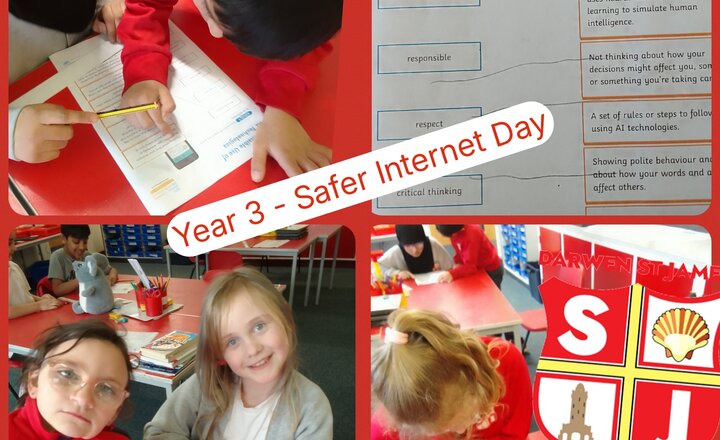

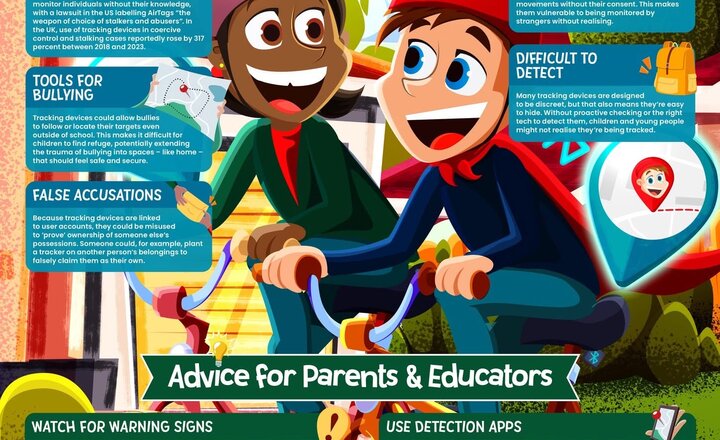
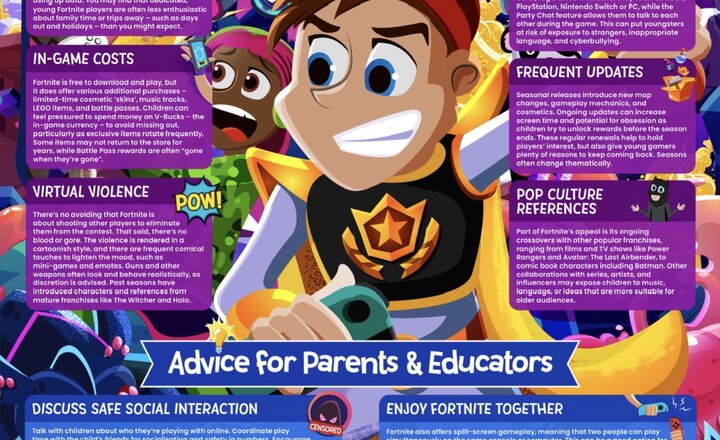
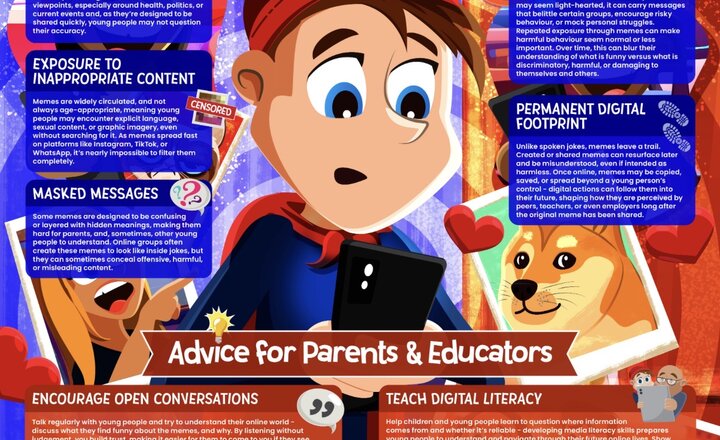
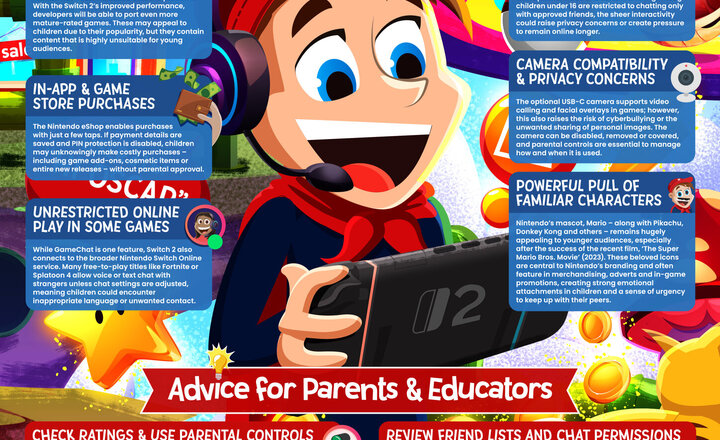
.jpg)
.jpeg)
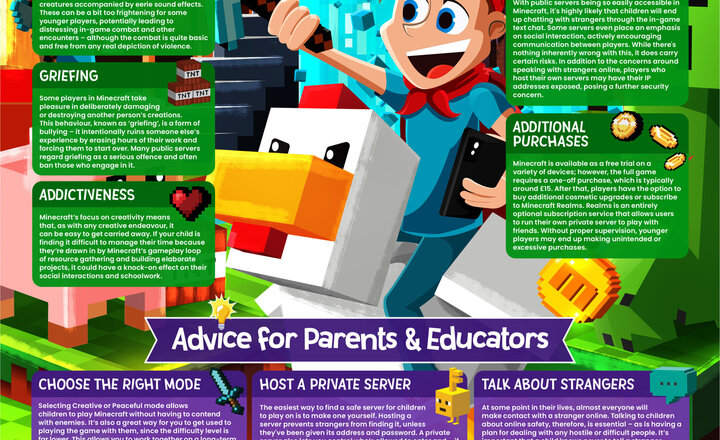
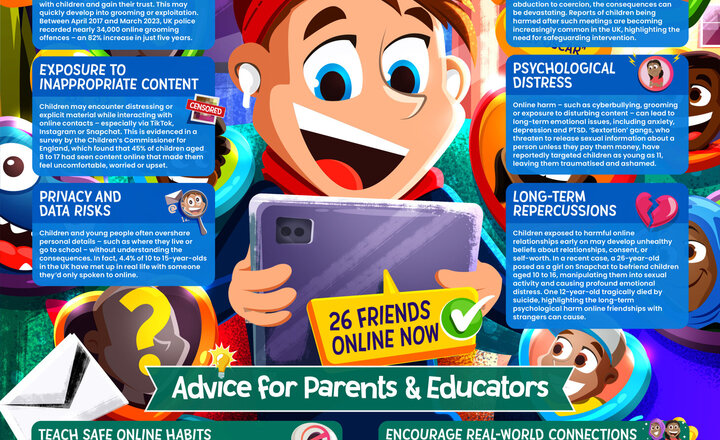
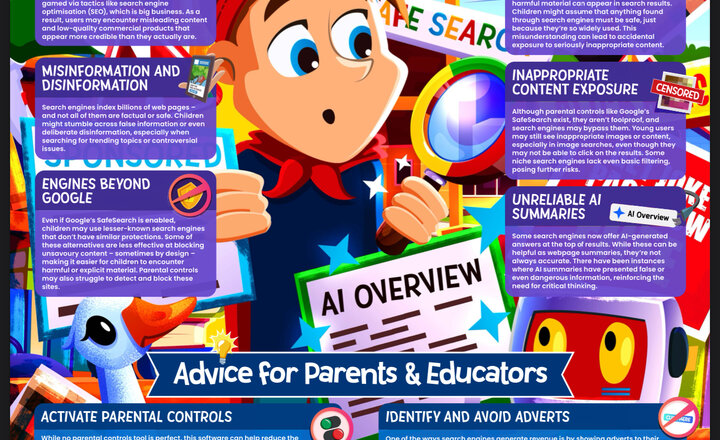
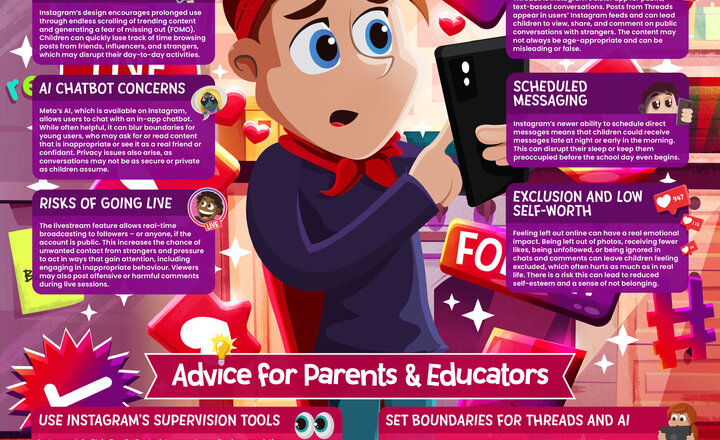
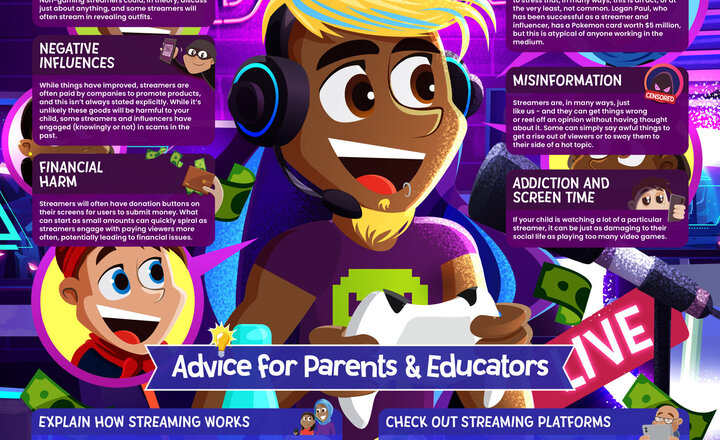
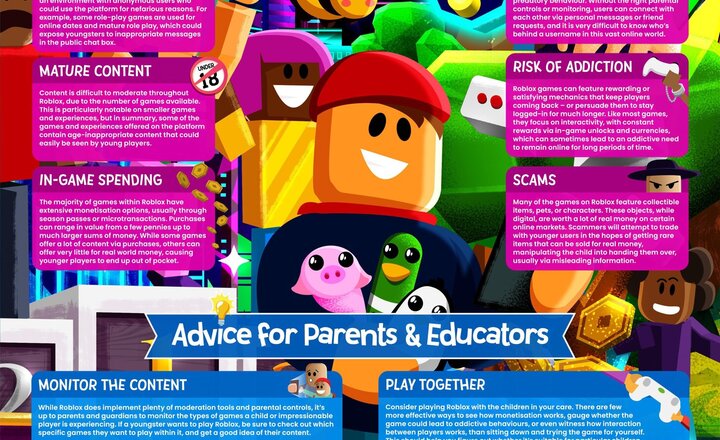
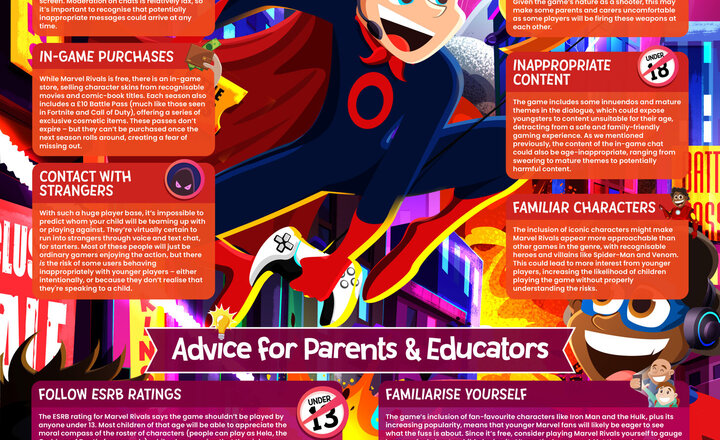
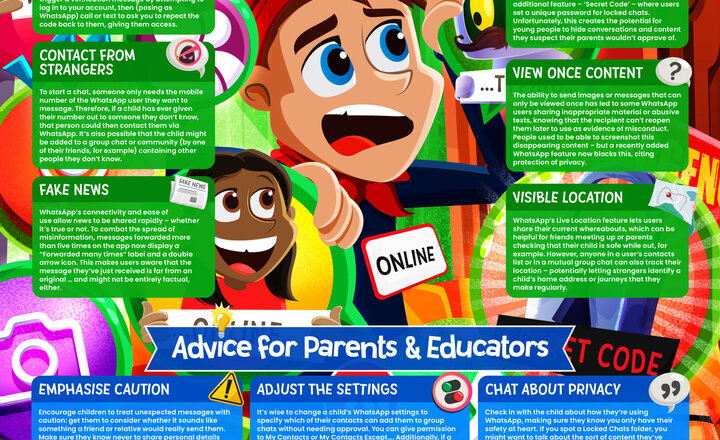
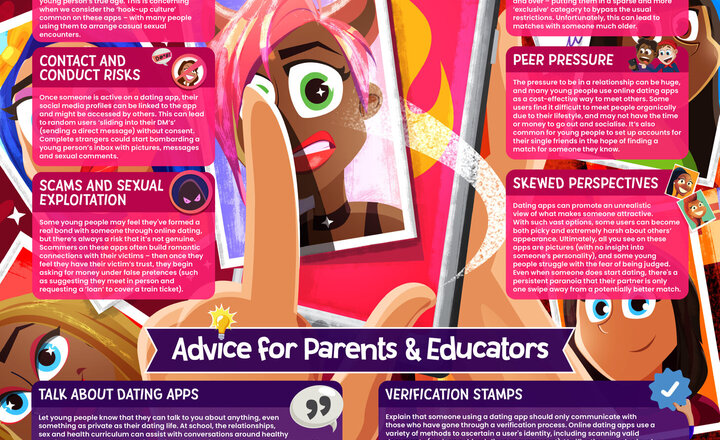
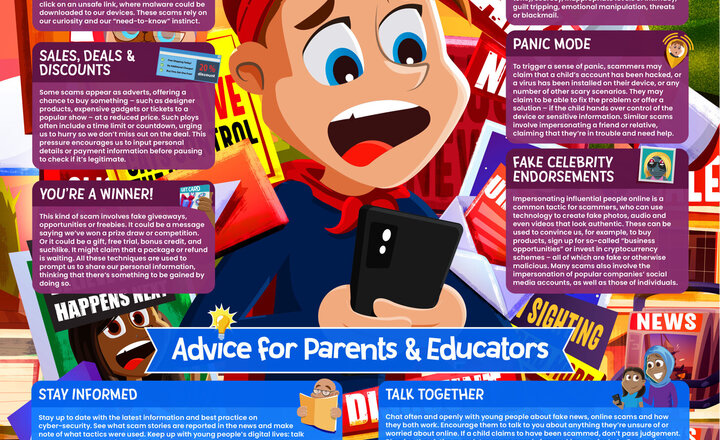
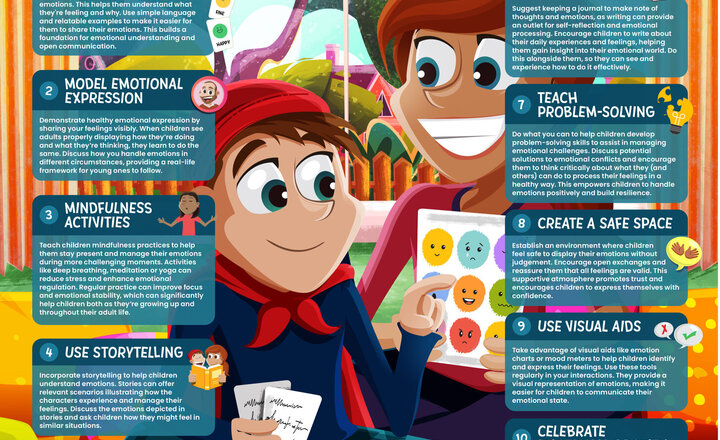
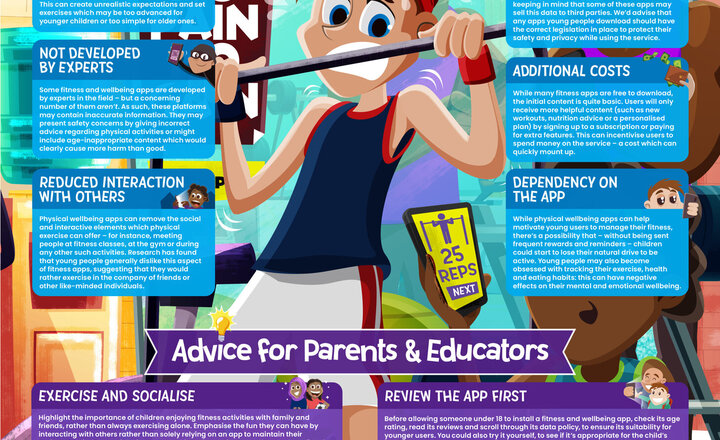
.jpeg)
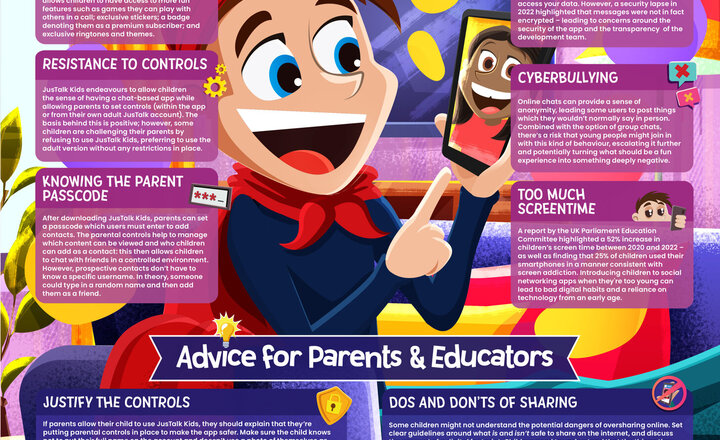
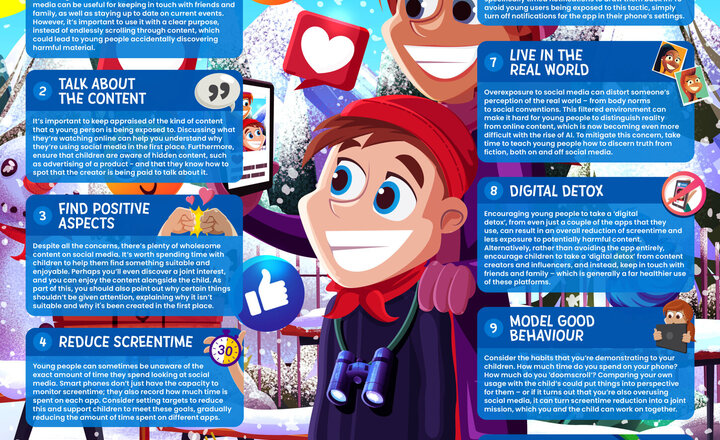
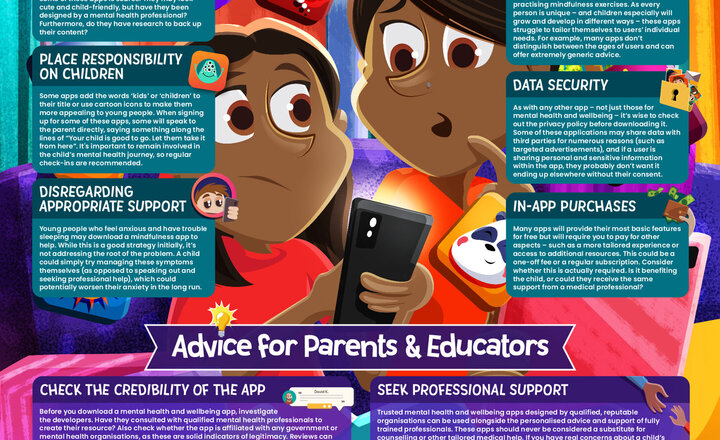

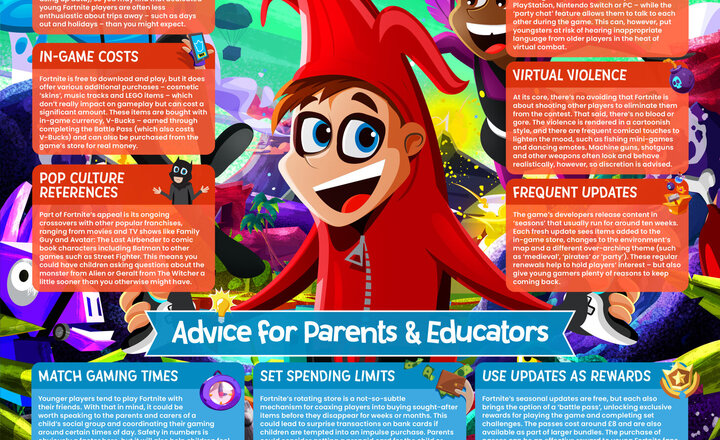
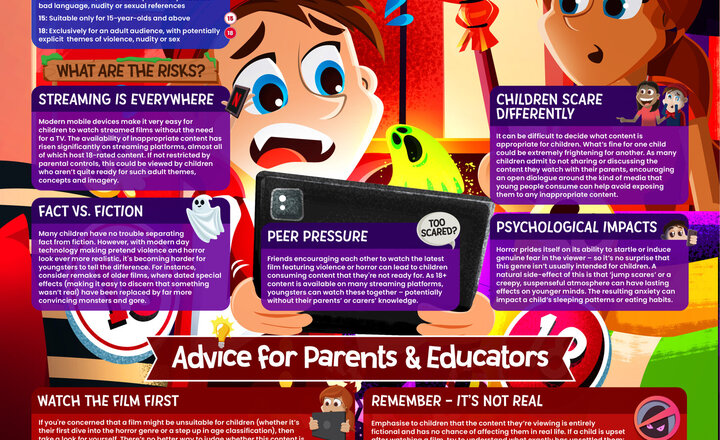
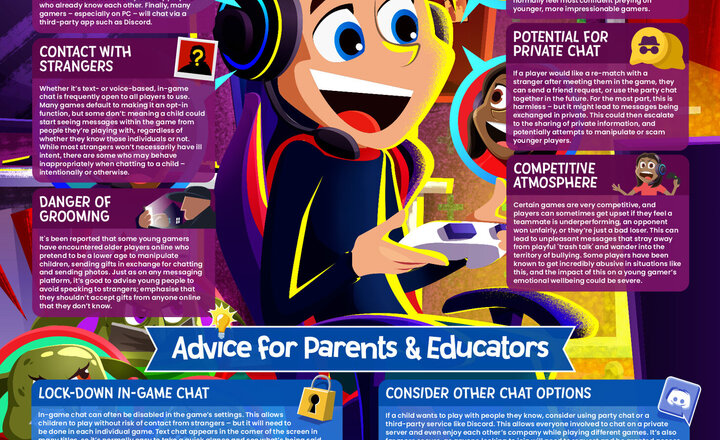

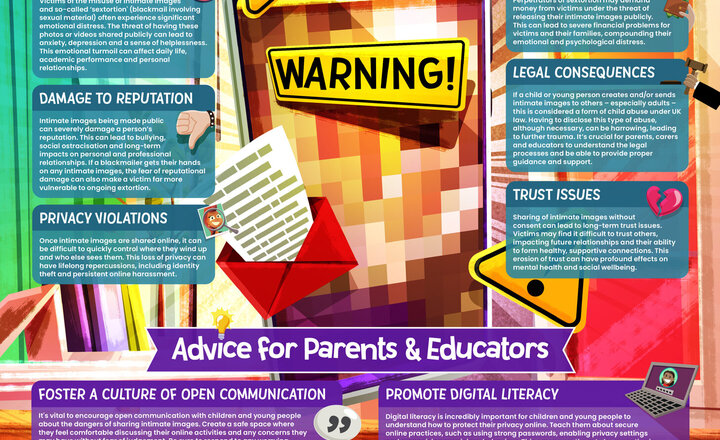
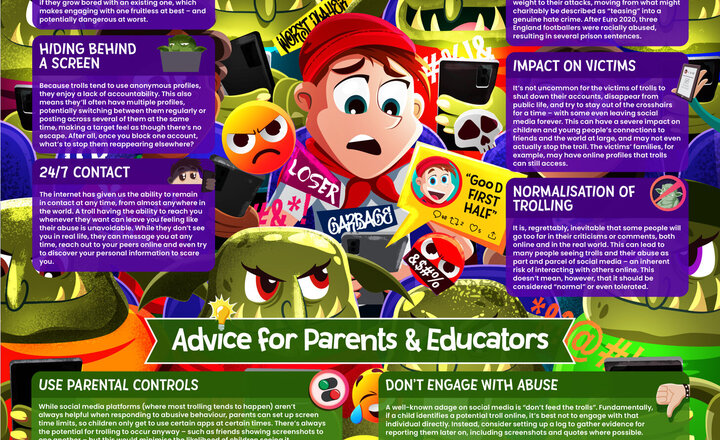

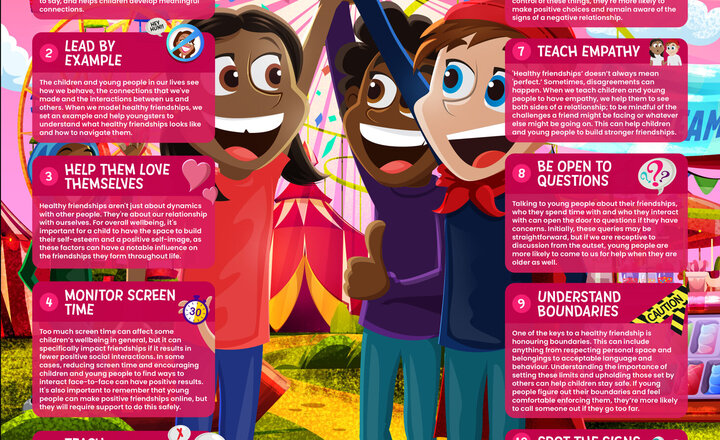

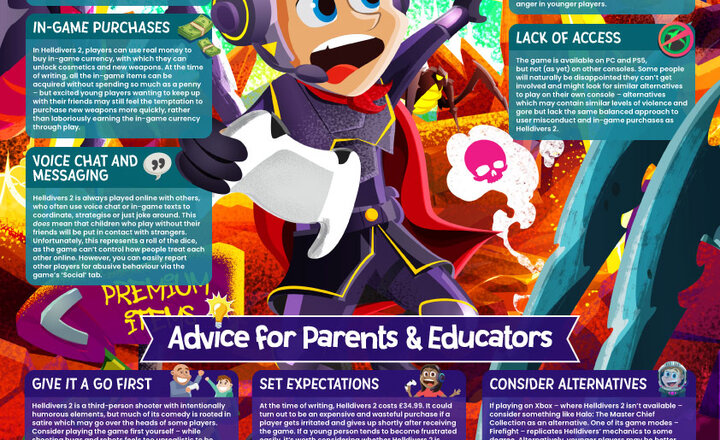
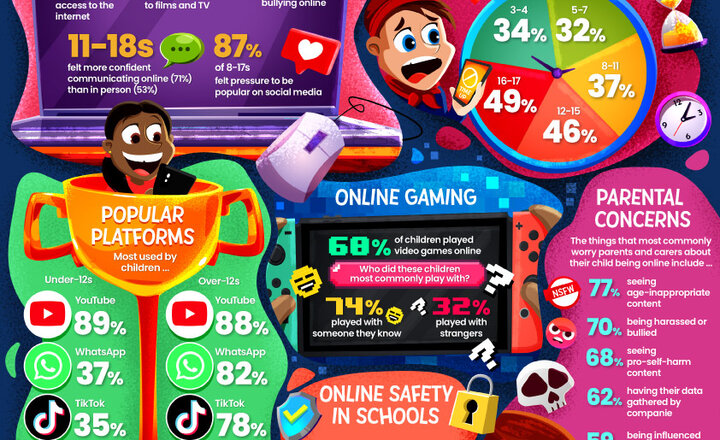
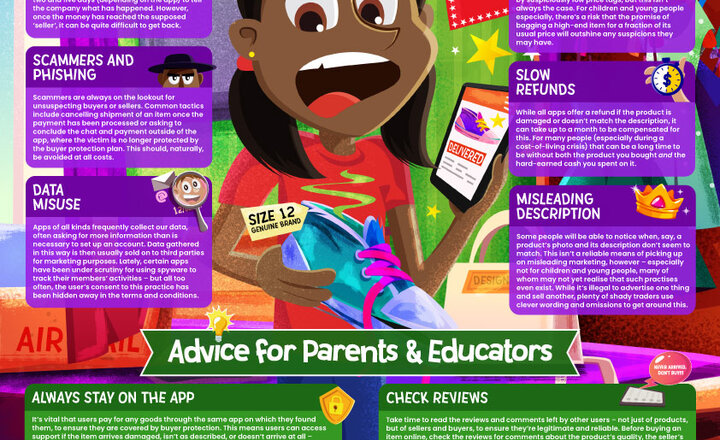
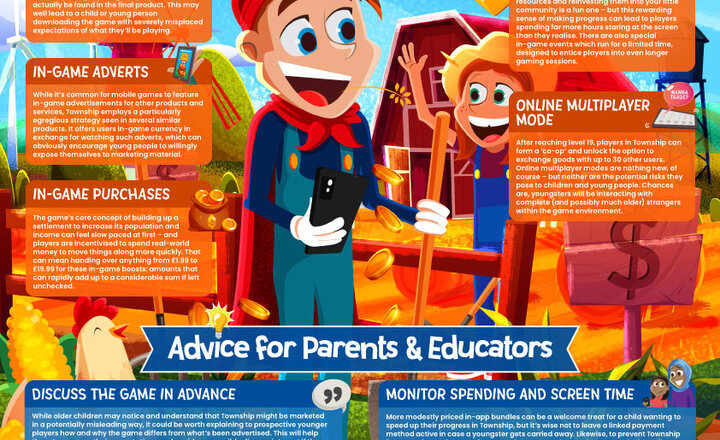
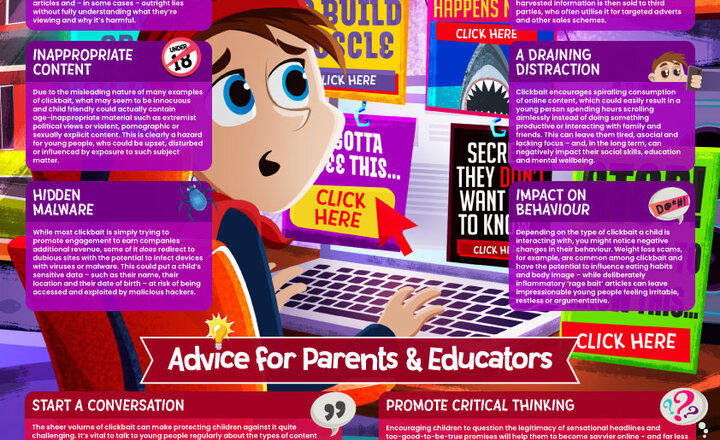
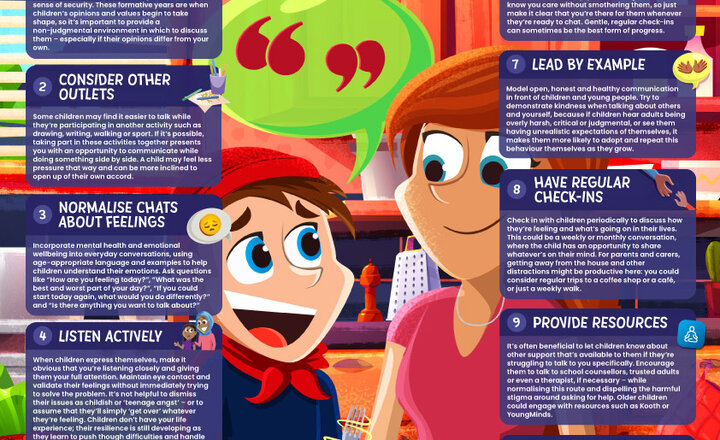

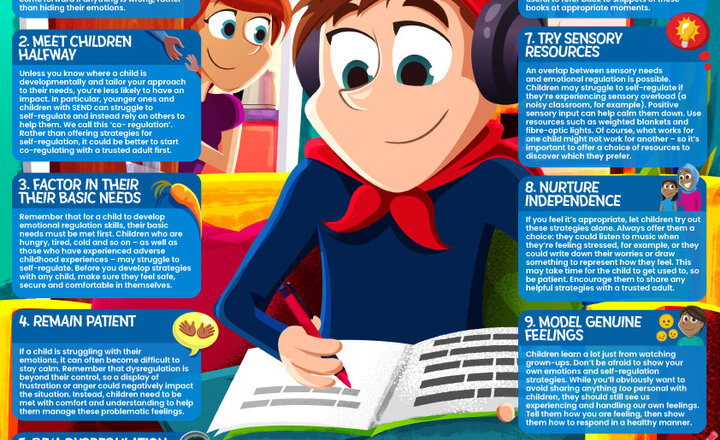

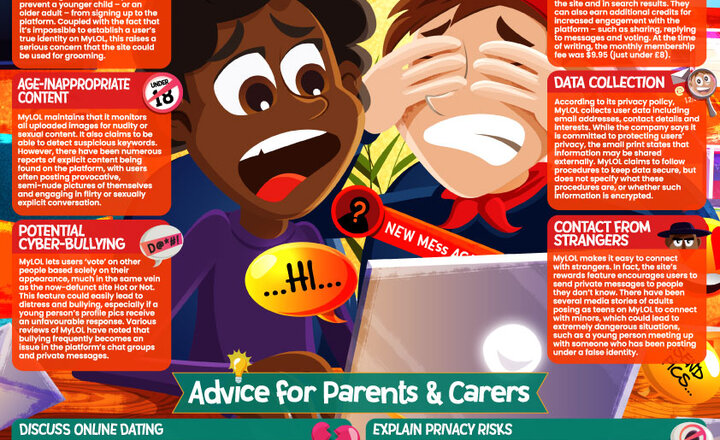
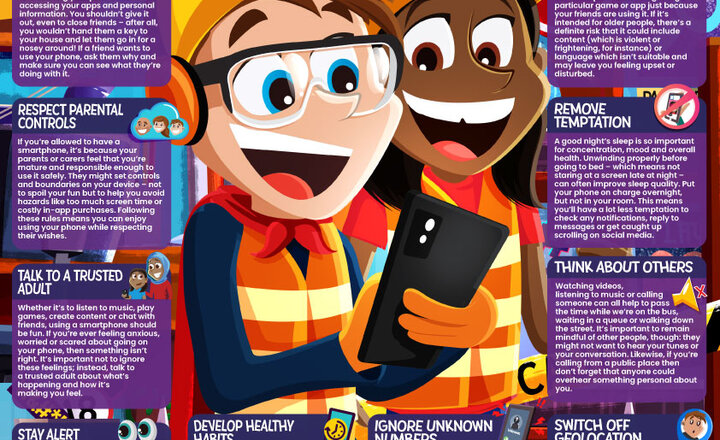
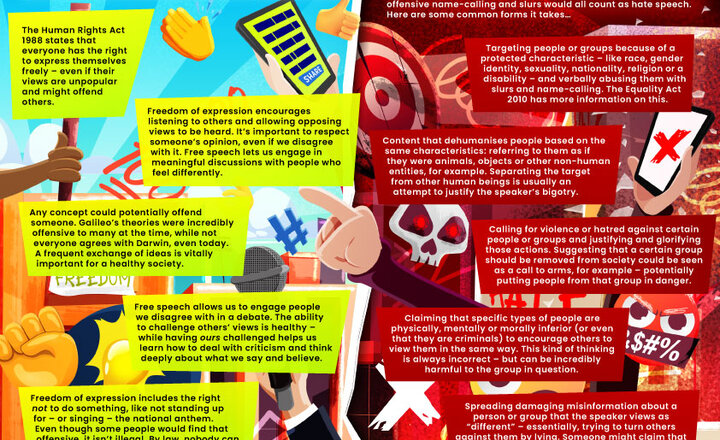
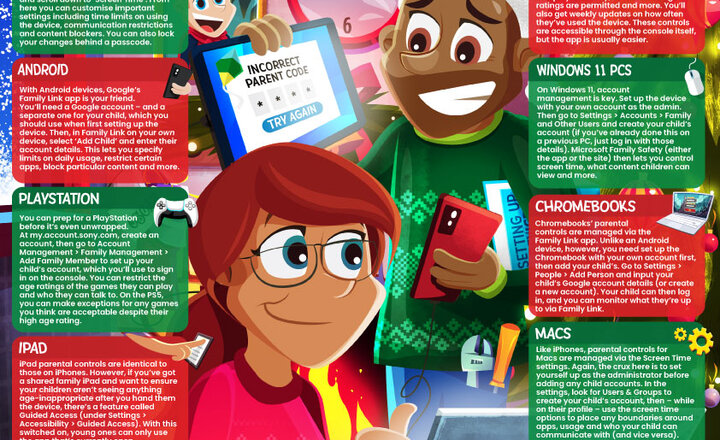

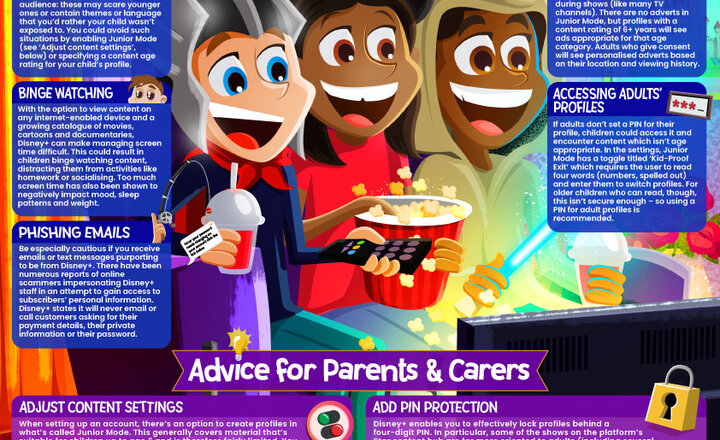






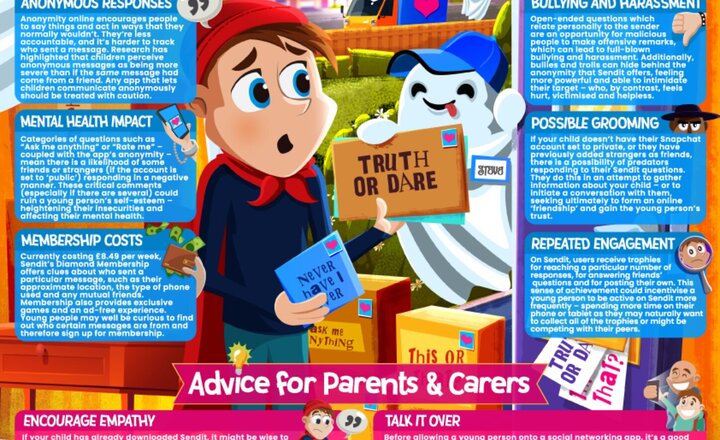
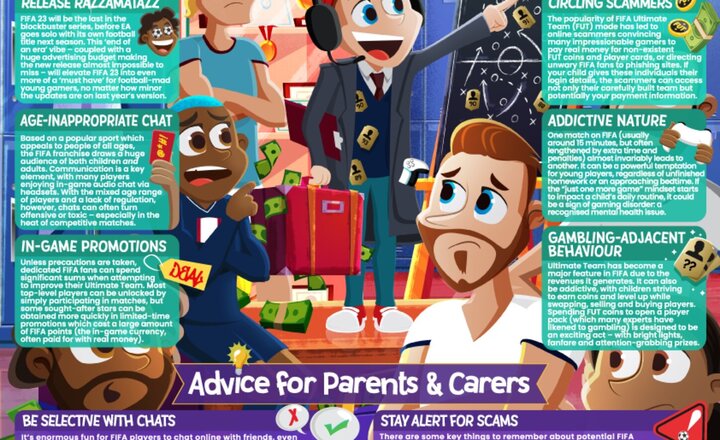
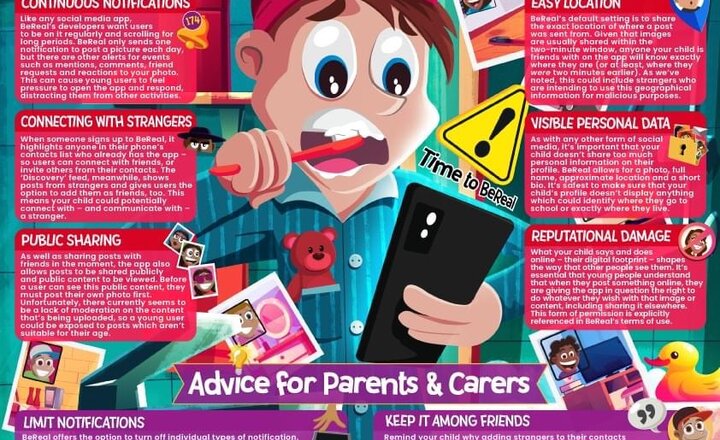
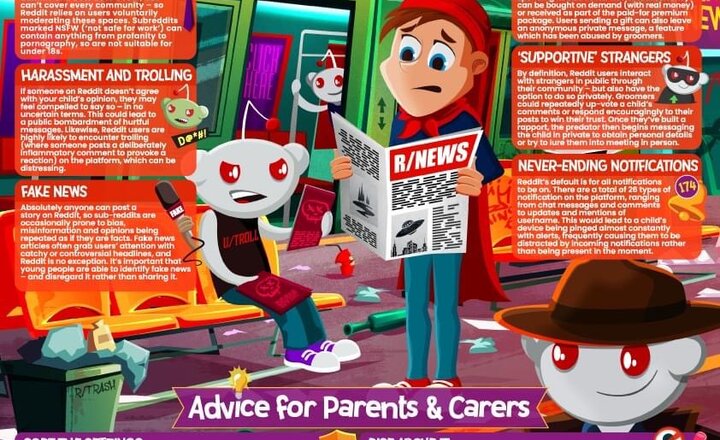
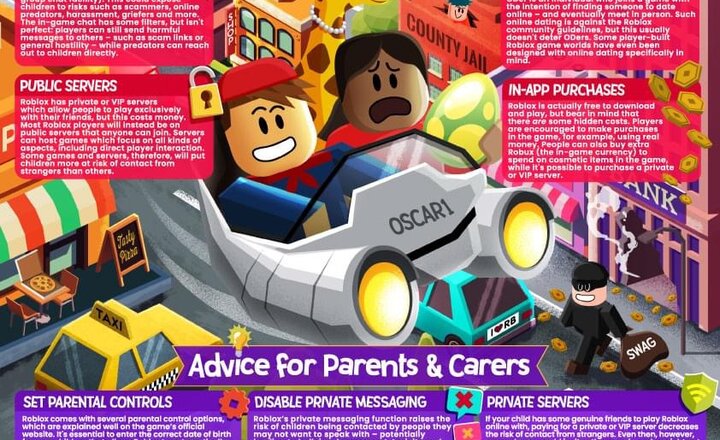
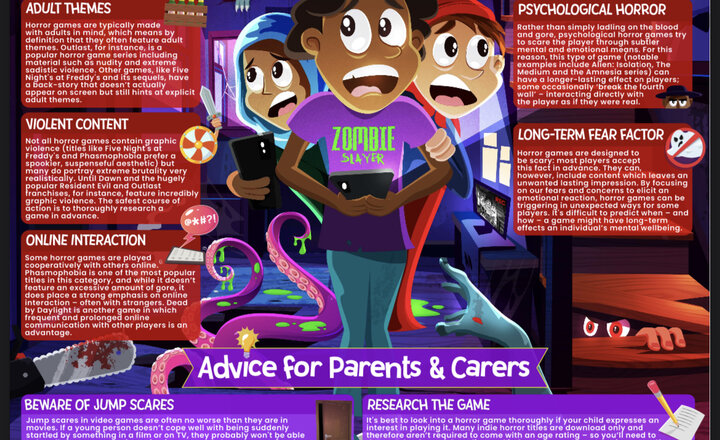

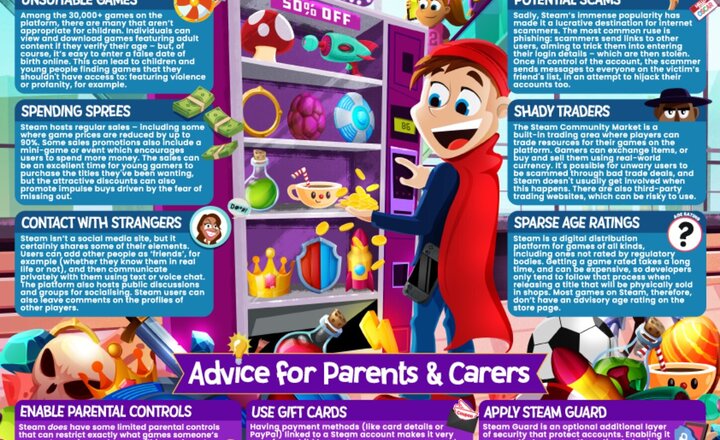
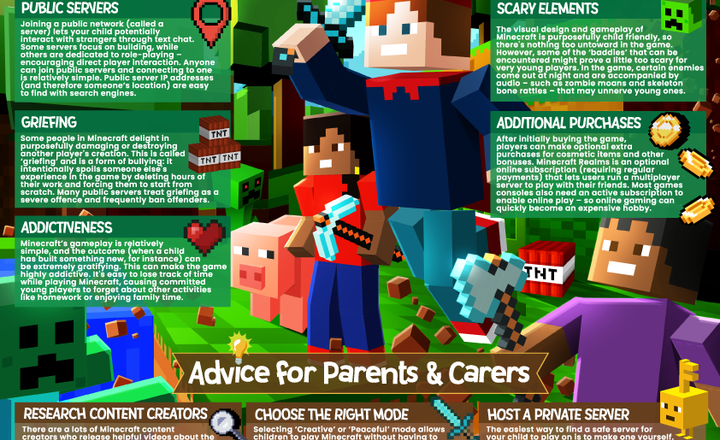
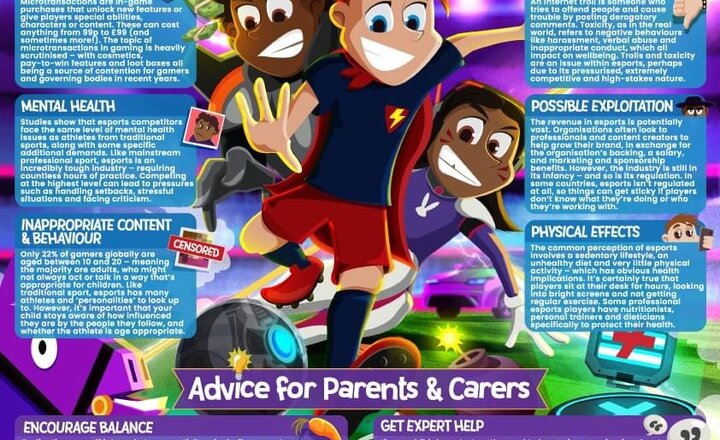
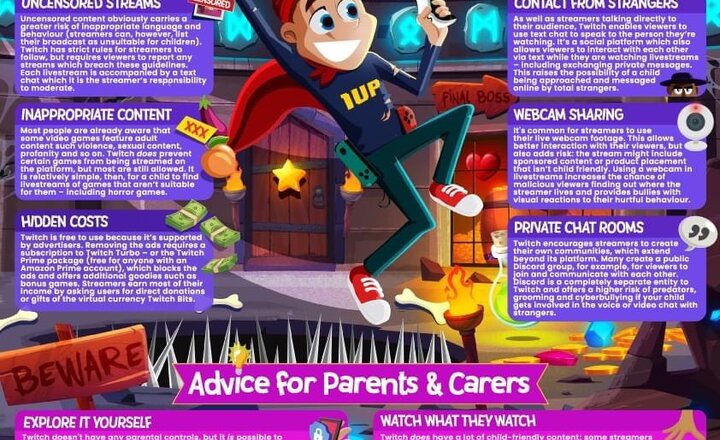
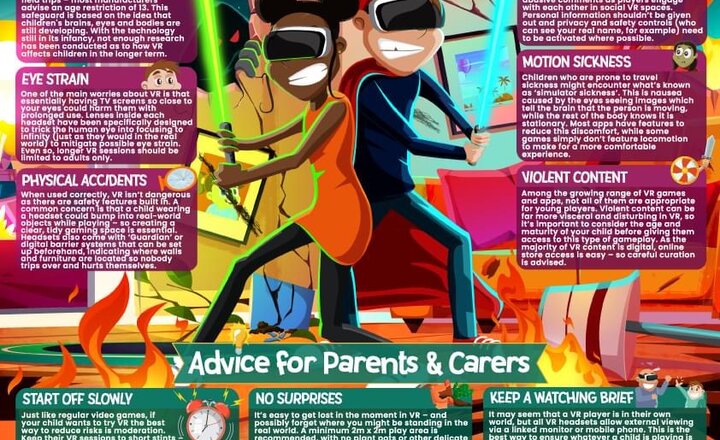
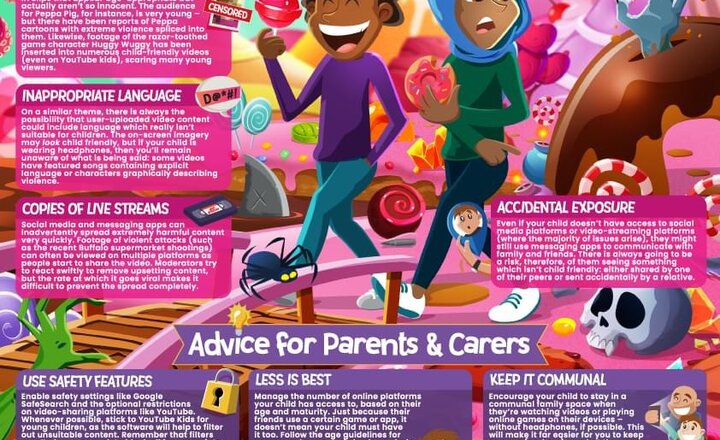
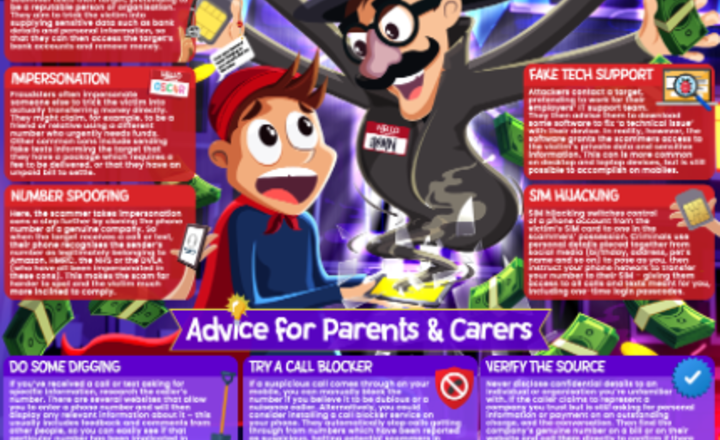
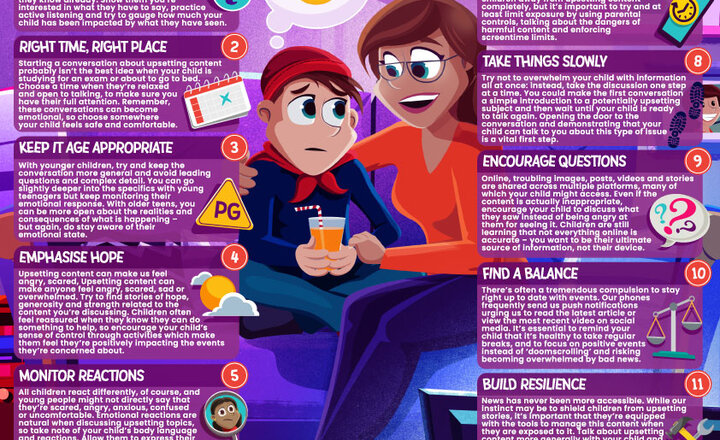
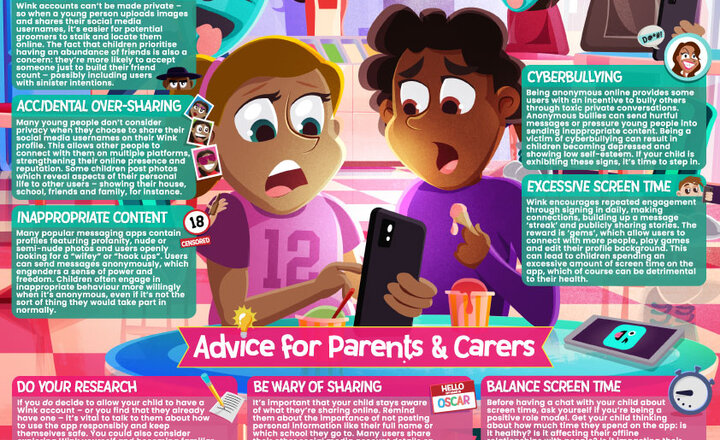
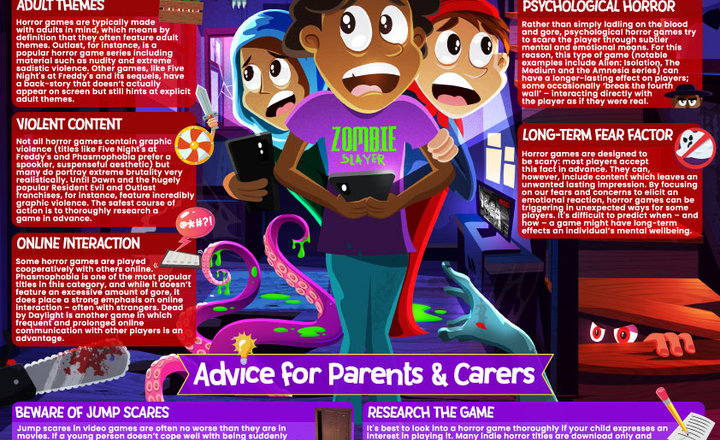
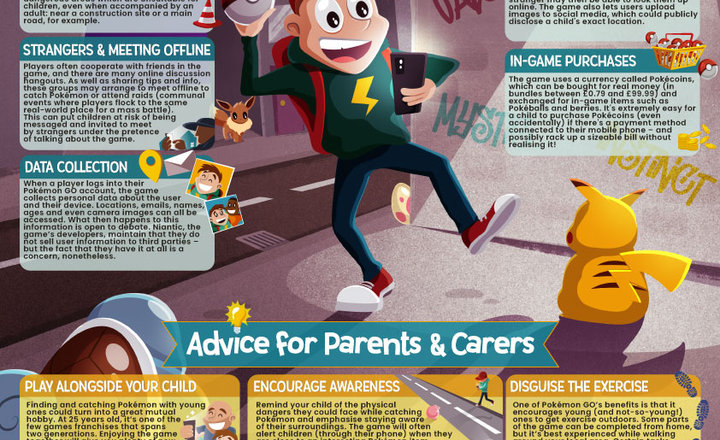
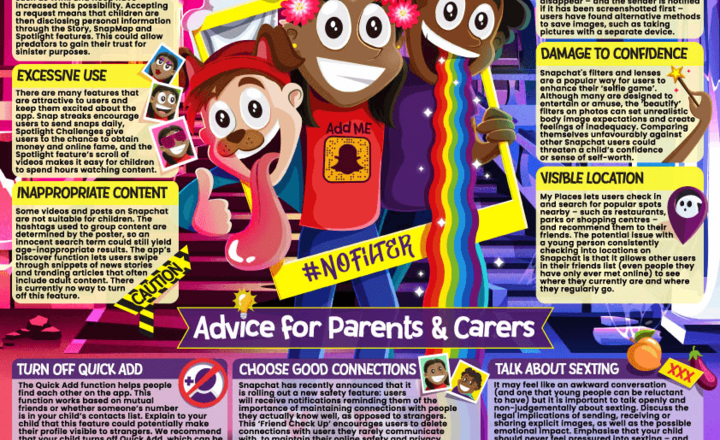
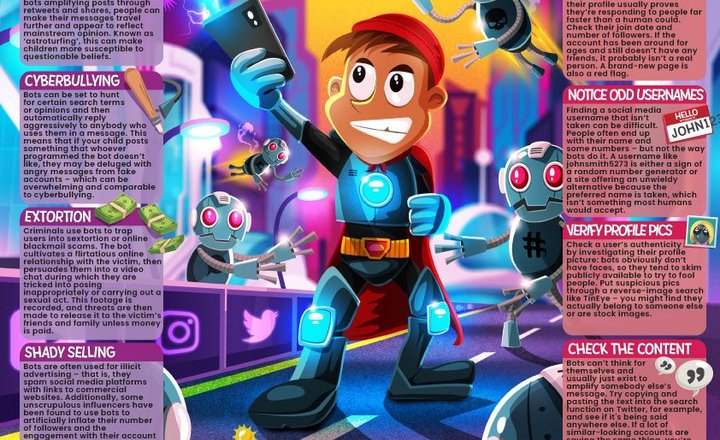
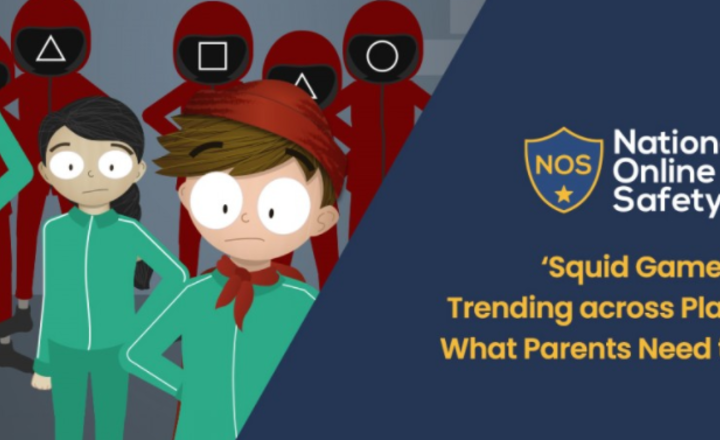
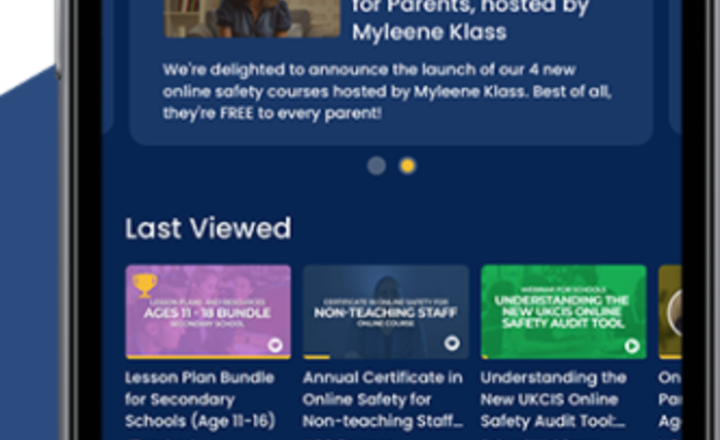

.png)

